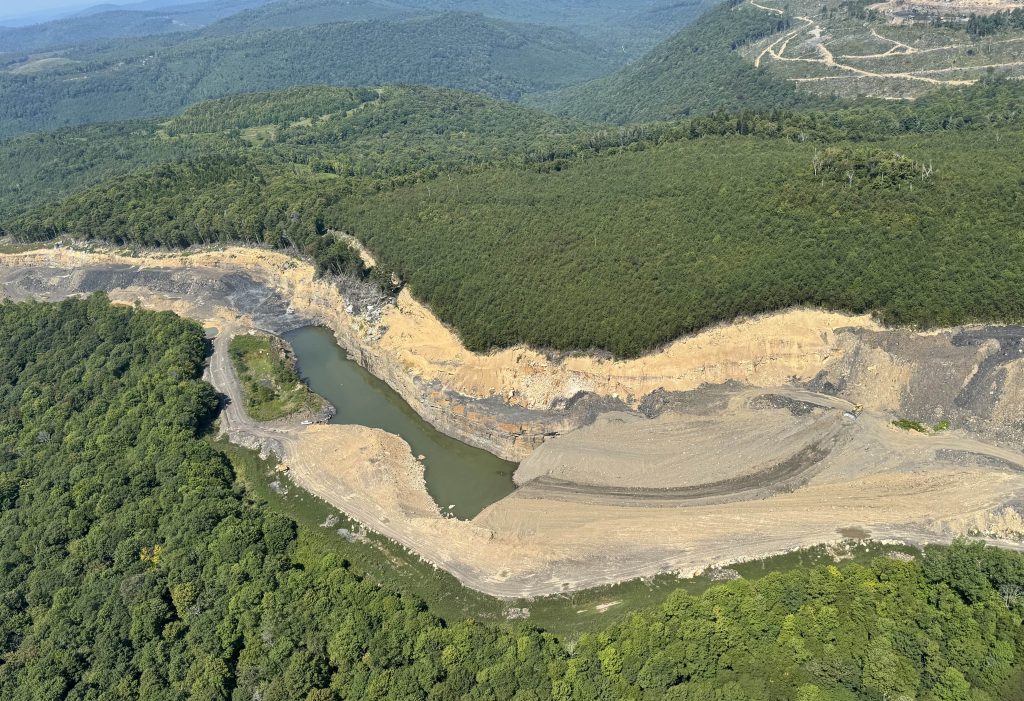Cleaning Up Coal Ash
For well over a century, power plants across the country have burned coal to generate electricity. And for just as long, leftover coal ash has been dumped in open, unlined pits near the power plant, usually located on a river or lake. Every year, U.S. power plants produce 130 million tons of coal ash, which is the second largest waste stream in the country after municipal garbage.
Coal ash concentrates the toxic heavy metals found in coal, including arsenic, mercury, lead and selenium. Stored in unlined, wet impoundments, coal ash has been leaking these toxics into our groundwater and surface waters for years. Sometimes these impoundments collapse — with disastrous results.
Yet government regulations for coal ash management are either non-existent or sparse, and there is little enforcement of the regulations that do exist. In North Carolina, this lack of oversight — and the complicity between state regulators, elected officials and Duke Energy — came to a boiling point in February 2014 when one of Duke’s coal ash impoundments spilled 39 million tons of ash into the Dan River.
Citizens living near North Carolina’s 33 coal ash impoundments — all of which have leaked — have fought for transparency from Duke and the state, and for cleanup of the pollution that threatens their property value, health and family. Their actions forced this issue into the headlines of news networks and to the forefront of environmental justice conversations in the United States.
Appalachian Voices stood with these communities as we worked for years to compel Duke Energy and the N.C. Department of Environmental Quality to excavate coal ash from all the North Carolina sites and dispose of it either in lined, dry landfills, away from waterways, or by recycling it for concrete or other uses, provided it’s done in a manner that protects public health and the environment.
On Jan. 2, 2020, North Carolina announced a historic settlement with one of the state’s most powerful corporations and polluters, Duke Energy. The settlement requires Duke to move nearly 80 million tons of toxic coal ash at six of its power plants to properly lined landfills onsite or recycle it.

Learn information about specific coal ash impoundments in the South, including health threats and safety ratings:
Additional Resources
Fact sheets, videos, links to academic research, and more
Sign Up to Act
Help us protect the health of our communities and waterways.
Latest News
North Carolinians tell NCDEQ to deny water permit for SSEP
More than 750 North Carolinians have spoken out against the proposed Southeast Supply Enhancement Project pipeline, telling the North Carolina Department of Environmental Quality to deny the Southeast Supply Enhancement Project pipeline a water quality permit.
New policy platform highlights proposals for, and by, Southwest Virginians
Appalachian Voices, in partnership with residents from five Southwest Virginia communities, released “Virginia’s Coal Community Development Platform,” a series of policy proposals that represent a community-led approach to creating a stronger economy in the region while fostering healthy places to live.
Spotting Fall Warblers at Seven Islands State Birding Park
Birding enthusiasts may be able to spot these 36 New World warbler species at Seven Islands State Birding Park in Kodak, Tennessee, this fall migration season.
FERC releases Environmental Assessment of Southgate’s plans to alter pipeline
Today, the Federal Energy Regulatory Commission released an Environmental Assessment for the methane gas pipeline Mountain Valley Pipeline Southgate, proposed for Virginia and North Carolina.
Appalachian Voices to host volunteer work day at Mill Mountain Park
On Oct. 16, Appalachian Voices is hosting a volunteer work day in the lead-up to Roanoke’s GO Fest to remove invasive species from Mill Mountain Park from 5 to 7 p.m.
Permits for coal-hauling in Monongahela National Forest are terminated
Late Wednesday, attorneys representing a coalition of conservation groups asked a judge to dismiss their case against the U.S. Forest Service.







![“The hooded warbler is what I call my spark bird, which is [the bird that] gets you into birding,” Fox says. “You see a bird, and it gets you wondering what it is, and then suddenly you discover there's this whole world of birds that you didn't know about.” Photo by Kelly Fox](https://appvoices.org/wp-content/uploads/2025/10/HoodedWarbler-1024x682.jpg)



